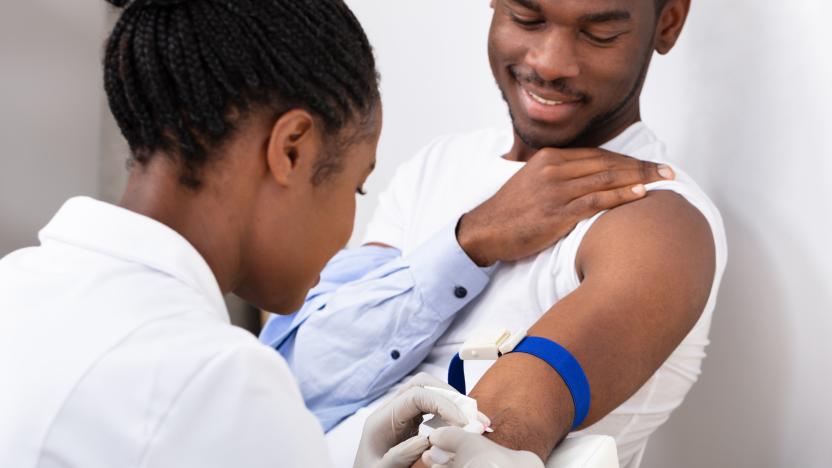If you had a dog that bit one out of every three people who came to your house, would you keep it? A significant percentage of people who use alcohol for social or recreational purposes become alcohol-dependent for part of their lives. In the US, about 30% of adults have had an “alcohol-use disorder” in their life. Excessive drinking leads to 88,000 deaths a year, and shortens the life of those who die by an average of 30 years. Alcohol is the most commonly used addictive substance in the United States. Alcoholic beverages are legal, socially accepted, and relatively inexpensive — but they are not harmless.
Shaky Studies. According to a new analysis of 87 studies, the heart health and longevity benefits in all but six were “seriously flawed” and “shaky at best.”1 Many studies were underwritten by alcohol lobbies — the remaining studies that were of higher quality showed no benefit.2 The US Department of Health and Human Services has removed language in its guidelines which suggested light drinking could confer heart benefits for certain people. England’s government guidelines now state that there is “no safe level” of alcohol consumption, and even small amounts increase the risk of certain cancers.3 At levels commonly seen in social drinking, even levels deemed safe for driving, alcohol prompts a sharp increase in destructive free radical activity, linked to a wide array of chronic diseases, including liver damage.
Body and Brain Effects. Alcohol molecules are tiny, and soluble in both fat and water. They easily permeate almost all parts of the body. Alcohol irritates the lining of the digestive tract, and increases the risk of mouth and liver cancer, stomach ulcers, pancreatitis and gastritis.4 A large-scale analysis showed that women having just three drinks a week significantly increased their risk of breast cancer.5
At low doses alcohol acts as a stimulant and lessens inhibition, but it is classified as a depressant because at moderate to high doses it actually depresses brain activity. Alcohol can damage brain tissue, even in socially acceptable amounts. Modest levels of alcohol intake can result in slowed reaction time, clouded judgment, and increased mistakes, all without the drinker recognizing his or her impairment.6 Perhaps that is one reason why alcohol is linked to 40% of industrial injuries and 50% of all driving fatalities.
The brain’s frontal lobes, the centers for emotions and planning, are especially susceptible to alcohol damage. Quitting alcohol helps the brain to recover, often with marked improvement in memory and learning in as little as six months.7
The French Paradox. Articles on the so-called “French Paradox” touting alcohol’s heart health benefits have been widely published. However, lower death rates from heart disease in the French were linked to their low consumption of saturated fat in the past — and high consumption of more healthful fats for more than 30 years — not wine consumption.8 Bold new guidelines released by England’s Chief Medical Officer Sally Davies challenge the long-held belief that drinking wine or any alcohol can cut the risk of cancer, heart disease, and memory loss.9
According to Dr. Robert Superko, former director of the Cholesterol, Genetics, and Heart Disease Institute in Berkeley, California, the cardiovascular benefits of alcohol have been greatly overstated. He calls heart health studies with alcohol “quite biased.”10 “Add that insight to the considerable role alcohol plays in the alarming obesity epidemic in the United States,” Dr. Superko says, “and a highly unflattering picture of alcohol’s cardiovascular effects emerges. Indeed, alcohol avoidance, along with increased physical activity and the elimination of simple sugars from the diet, ought to be at the core of any strategy to reduce the obesity problems. Alcohol is very calorie dense. One glass of wine contains as many calories as a Snickers candy bar — about as many as are burned in a one-mile walk.”11
Did Jesus Drink Alcohol? In our culture, wine means a fermented beverage. The Greek word for wine (oinos) can mean either fermented or unfermented juice.
Jesus drank unfermented juice, the “pure blood of the grape” (Deuteronomy 32:14 KJV). He turned gallons of water into sweet, fresh unfermented grape juice (John 2:1-11). Such succulent beverages were highly prized among the ancients and had the blessing of God. “As the new wine is found in the cluster...do not destroy it, for a blessing is in it...” (Isaiah 65:8). The Scriptures have continued warnings against alcohol, that it attacks the user with a vengeance and “at the last” has the death bite of a poisonous viper (Proverbs 23:32).
Protection Without Problems. The Adventist Health Study has shown that a diet rich in antioxidants and dietary fiber from fruits, vegetables, whole grains, and beans plus regular exercise improves heart and immune function, lowers stress, high blood pressure, stroke, dementia and cancer risk. It also adds years of quality life. Creating social occasions around attractive, flavorful fruits, salads, beans, vegetables, and flavorful juices or herb teas can brighten any social gathering. It creates a wholesome atmosphere for all to enjoy, safeguarding that person who might be vulnerable to addiction. If you are fighting an addiction, always work with your healthcare team and support group.
Grab Those Grapes! For optimum heart health, make healthful lifestyle choices and grab those dark-colored grapes with plant compounds called polyphenols. The latest word from the grapevine is to choose “pure blood of the grape,” the unfermented juice, with its “blessing” in the wholesome cluster. That is undoubtedly the safest, wisest, and most wholesome way to receive the health-promoting benefits of grapes.
Call to Action
If alcohol has a hold on you, there is hope and help. Work with your health care provider. Ask God to give you power and strength to find freedom.
Visit LifestyleMatters.com for more resources.
Unless noted otherwise, scripture taken from the New King James Version®. Copyright © 1982 by Thomas Nelson. Used by permission. All rights reserved.
- “Do Moderate Drinkers Have Reduced Mortality Risk?” Journal of Studies on Alcohol and Drugs. 2016.
- Ibid.
- UK’s Committee on Carcinogenicity on Alcohol and Cancer Risk.
- Ibid.
- www.breastcancer.org/risk/factors/alcohol.
- Stud Alcohol Drugs 2007 Mar; 68(2):276-81.
- Clinical Psychology Review 2014;(34):531-550.
- What Explains the French Paradox? NutritionFacts.org, 2015.
- https://www.gov.uk/government/news/new-alcohol-guidelines-show-increased-risk-of-cancer.
- International Medical News Group, 2003(36)6.
- Ibid.




